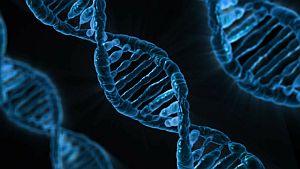How do you know if you have MTHFR mutation that causes B12 deficiency?
MTHFR (or methylenetrahydrofolate reluctase, if you want the complicated version!) is a type of gene that helps produce the MTHFR enzyme. This enzyme is responsible for breaking down a common amino acid found within our blood - homocysteine.
MTHFR mutations can lead to the enzyme’s inability to effectively break down homocysteine. High levels of homocysteine within the body can lead to a number of health issues, such as vitamin B12 deficiency and heart disease
This means it’s sometimes recommended that people undergo testing to see whether they have a MTHFR mutation. The test is usually ordered by a doctor when it is discovered that a patient:
- Has elevated homocysteine levels
- Has a family history of conditions relating to the heart and blood, such as cardiovascular disease or thrombosis
- Has a close relative with the MTHFR mutation
The MTHFR test can help determine whether you should undergo treatment for conditions caused by having heightened levels of homocysteine in your blood. High levels of homocysteine often cause people to suffer from vitamin B12 deficiency, so treatment may involve taking vitamin supplements or injections.
If you think you may benefit from a MTHFR test, please visit your doctor for more information. Alternatively, due to the growing popularity of DNA and genetic testing kits, you can order kits that will include MTHFR testing as part of their services online. If you’re interested in learning more about MTHFR and what it means if you are found to have a MTHFR mutation, read on!
What is MTHFR?
 As we discussed above, MTHFR is the name of a gene responsible for helping break down homocysteine, an amino acid found in our blood. Amino acids are important in creating proteins within the body, and excess homocysteine is often broken down or converted into other necessary substances by folic acid or other B vitamins.
As we discussed above, MTHFR is the name of a gene responsible for helping break down homocysteine, an amino acid found in our blood. Amino acids are important in creating proteins within the body, and excess homocysteine is often broken down or converted into other necessary substances by folic acid or other B vitamins.
All of us have two MTHFR genes. One is inherited from our mother, and the other from our father. The two types of mutations that specialists are interested in finding out about are labelled as C677T and A1298C. A person can inherit both, or just one, of these mutated versions of the gene.
What happens if I have a MTHFR mutation?
Thankfully, not everybody that has a MTHFR mutation will develop high levels of homocysteine. This is because some people take enough folic acid and B supplements to help break down the excess amounts of homocysteine in their system caused by the mutation.
Also, not everybody with high levels of homocysteine has the MTHFR mutation. Due to its links with folic acid and B vitamins, high levels of homocysteine can actually be caused by vitamin deficiencies.
If you do develop high levels of homocysteine, however, this can lead to a few health issues:
- Homocystinuria
The name given to high levels of homocysteine and the related symptoms. It can lead to blood clots, developmental delay, microcephaly (a medical condition in which the brain does not develop properly), a lack of coordination, numb/tingling extremities and seizures. Symptoms often start in childhood.Low levels of B vitamins and folate
Folic acid and other B vitamins are used to break down extra homocysteine in the blood, those with a MTHFR mutation are more likely to be deficient in these essential vitamins. This can lead to a range of issues, like pernicious anemia. - Peripheral neuropathy
This is a condition where damage to the nervous system results in issues with sending messages from the brain and spinal cord to the rest of the body, a little bit like when a wire becomes damaged. It can lead to unpleasant sensations, such as numbness, tingling and pain. You can read more about peripheral neuropathy. - Cardiovascular diseases
Heart disease, strokes, blood clots, heart attacks and high blood pressure are all reported to become more likely if you have excess homocysteine in your system. This is because homocysteine can cause blood vessel blockages and damage artery linings. - Mental health issues
High levels of homocysteine have been associated with mental health issues such as ADHD (attention deficit hyperactive disorder) and depression. - Birth defects in pregnant women
Mothers with MTHFR mutation(s) are more likely to give birth to babies with neural tube defects. One example of this includes spina bifida, where spinal bones do not fully grow around the spinal cord. Another example is anencephaly, where sections of the brain or skull are malformed.

MTHFR In recent years
Luckily, the MTHFR gene has become one of the most tested genes in recent years, so we now know plenty about how it affects us. It is currently one of the most well-known genes because of the many health issues it is reported to have been linked to. Recently people have been more interested in figuring out whether they have MTHFR mutations, as doing so can help them treat symptoms and adjust their lifestyles in order to prevent the onset of cardiovascular diseases they may be more susceptible to.
MTHFR Caution
It’s important to consider the opposing evidence, too. Despite the wide range of conditions that the MTHFR gene mutations have been linked to, some experts have cast their doubts on how much people are focusing on the gene and getting themselves tested.
For example, the American Heart Organization now recommends against using MTHFR gene testing to determine whether someone is more likely to develop cardiovascular diseases. This is because the MTHFR mutation is a relatively common one. Having this common mutation alone without any additional symptoms or issues is not a major risk factor for developing these diseases, so check your signs and symptoms and consult your physician with an informed report.
How are MTHFR mutations treated?
If your test results come back to show that you do have a MTHFR mutation in either one or both of your MTHFR genes, you might want to think about treatment. Not everybody with the mutation will need treatment, as some don’t suffer the effects of Homocystinuria. However, some patients will.
There are a few things your doctor might recommend:
- Lifestyle and dietary changes
Sometimes treatment is as simple as making a few changes to your lifestyle. B Vitamins and folic acid can be naturally found in foods such as red meats, so you might just need to make some adjustments to your diet in order to reduce your homocysteine levels. Those with B-vitamin absorption issues might require injections. - B Vitamins
Essential to a wide variety of bodily functions, B vitamins and injections are often recommended to those with MTHFR mutations and have high homocysteine levels. This is due to the role the vitamins play in helping break down homocysteine in the blood. - Folic acid (B9)
A type of B vitamin, folate is necessary for metabolism and cell health. It’s even more important when a patient experiences rapid growth – such as during pregnancy and early years. This is why many pregnant women are prescribed folic acid supplements as soon as possible. - 5-MTHF
This is an active form of folate that can easily be absorbed by the body. In patients with digestion issues, who can’t properly process folic acid, this is the preferred treatment. - Methionine
An amino acid found in meat, fish, and dairy products. It’s considered essential for growth and tissue repair.
Take Away
 So, to summarize, the MTHFR gene is responsible for producing the MTHFR enzyme that breaks down homocysteine. Excess homocysteine can be damaging to arteries and blood vessels. Many studies have claimed that MTHFR mutations therefore lead to a wide variety of health issues, such as cardiovascular diseases leading to a rise in popularity of MTHFR mutation testing, as well as increased knowledge surrounding the gene.
So, to summarize, the MTHFR gene is responsible for producing the MTHFR enzyme that breaks down homocysteine. Excess homocysteine can be damaging to arteries and blood vessels. Many studies have claimed that MTHFR mutations therefore lead to a wide variety of health issues, such as cardiovascular diseases leading to a rise in popularity of MTHFR mutation testing, as well as increased knowledge surrounding the gene.
While some evidence supports these claims, more recent studies have shown that the MTHFR mutation alone cannot be considered a major risk factor for such illnesses, as it is relatively common.
Despite this, it’s important to take care of your own health and ensure that you receive adequate medical advice and treatment. Homocysteine can lead to vitamin deficiencies, such as B12 deficiency, which can lead to a wide range of other issues such as nerve problems, fatigue and mental disorders.
You can help combat the effects of Homocystinuria and vitamin deficiencies by taking vitamin B12 shots, which we sell in our B12 online shop. While we continually aim to provide solid medical advice, it’s important that you always consult a doctor before switching up your vitamin intake. They can also provide advice on how to use the injections effectively and safely!
Sources:
https://www.mygenefood.com/do-i-have-an-mthfr-mutation-heres-how-to-find-out/
https://medlineplus.gov/lab-tests/mthfr-mutation-test/
https://www.mygenefood.com/science-mthfr-mutations-explained/
https://www.healthline.com/health/mthfr-gene
https://labtestsonline.org/tests/mthfr-mutation
https://www.medicalnewstoday.com/articles/326181.php
https://my.clevelandclinic.org/health/diseases/15032-anencephaly
https://blog.23andme.com/health-traits/our-take-on-the-mthfr-gene/
https://familydoctor.org/high-homocysteine-level-how-it-affects-your-blood-vessels/
Images- Pixabay.com









